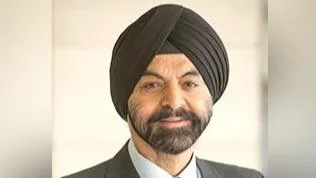The Democratic Republic of the Congo (DRC) faces numerous challenges and opportunities, from its vast mineral resources to its expansive forests. These forests cover two-thirds of the country and are part of the Congo Basin, which houses the world's second-largest rainforest. Over half of DRC's population lives in rural areas, relying heavily on these forests for sustenance, often at the expense of environmental health.
For the past decade, the Improved Forest Landscape Management Project (IFLMP), supported by the World Bank, has worked to address these issues. Launched in 2014 with funding from multiple sources including the Climate Investment Fund’s Forest Investment Project and the Global Environment Facility, IFLMP aimed to enhance community livelihoods, promote sustainable forest management, and reduce greenhouse gas emissions from deforestation.
The project introduced clean cookstoves to over 600,000 people, reducing reliance on forest-sourced charcoal and improving respiratory health. Florence Kavira, a beneficiary of an IFLMP grant for improved cookstoves, stated: “A household that used to use two bags of charcoal per month for cooking can now use a single bag or two-thirds of a bag per month once they have adopted our improved stove technology.”
Patrice Savadogo, Senior Forestry Specialist with the World Bank and IFLMP Team Leader, highlighted several successes: "Operating for a decade gave the project enough time to build trust and familiarity in the communities and with the landscape." The project established 25,117 hectares of agroforestry plantations and increased incomes for over 248,500 local people. It also facilitated a $55 million Emission Reductions Payment Agreement (ERPA) between the World Bank and DRC government.
Under ERPA's Payments for Ecosystem Services (PES) initiative, communities received over $3 million in results-based payments reinvested into local microprojects. Akim Kimosi from Ndongwa village noted how beekeeping training improved his livelihood: "Now I can educate my children, pay rent, and invest in my field work."
IFLMP also invested in rural connectivity by rehabilitating over 462 km of roads and 49 bridges. This effort addressed isolation issues while responding flexibly to health crises such as Ebola and COVID-19.
Savadogo emphasized governmental support: “IFLMP had champions at high levels of government,” noting collaboration with various ministries.
Although IFLMP concluded in May 2024, its impacts continue through active community forest concessions and ongoing PES-financed projects. The project's legacy includes enhanced sustainable landscape management practices that benefit both biodiversity and local communities.
Building on these achievements is the $300 million Forest and Savanna Restoration Project designed to expand IFLMP initiatives across seven provinces. This new project aims to further integrate climate contributions with economic benefits for local populations.
###

